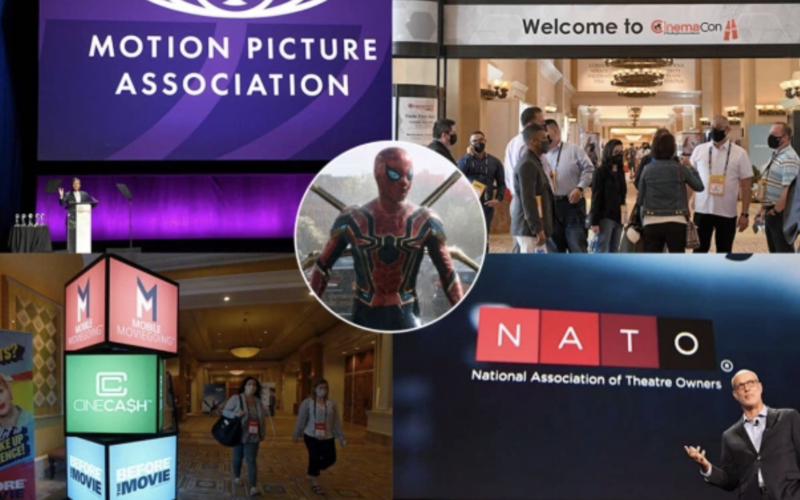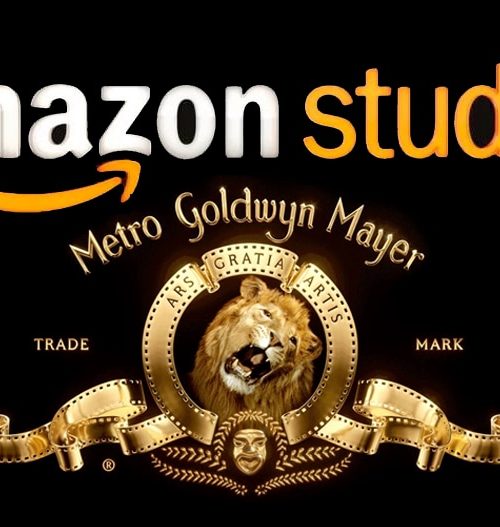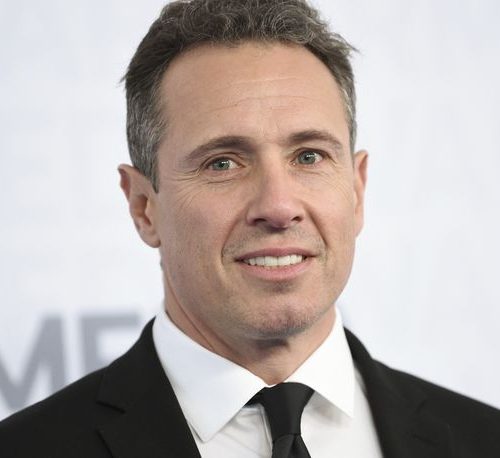BY CAROLYN GIARDINA, AARON COUCH
Troy Warren for CNT #Business #Entertainment
During the pandemic-era Las Vegas convention, Sony Pictures chief Tom Rothman trotted out “It’s the window, stupid” as a mantra as studios previewed movies highlighted by ‘Matrix 4,’ ‘No Time to Die’ and ‘Spider-Man: No Way Home.’
Following a devastating 18 months, theater owners returned to Las Vegas for CinemaCon to begin planning the industry’s next act.
The Hollywood Reporter headed to Caesars Palace — the smell of casino cigarette smoke heavy even under our masks — to chronicle the mood as cinema owners braced for more uncertain times. This year’s convention, held Aug. 23-26, came as theaters face the coronavirus pandemic, vanishing theatrical windows and the threat of tentpoles debuting day-and-date on streaming services. Despite the high stakes, the mood was relaxed inside Caesars Palace, which was packed with as many gambling patrons as you’d see in a normal year (most properly masked).
To gain entry to the 4,300-seat arena The Colosseum, CinemaCon attendees needed an orange rubber bracelet that proved they’d been vaccinated or provided a negative COVID-19 test. Attendance was visibly down, probably by about a third in the Colosseum, where studios in normal years trot out A-list stars and big footage. And in main exhibition ballrooms, where the booths didn’t cover the floor space, the sparse attendance was even more evident.
But they were back. Theaters are open, and anticipated movies including Spider-Man: No Way Home, No Time to Die, Top Gun: Maverick, Mission: Impossible 7, Dune, The Matrix Resurrections and The Unbearable Weight of Massive Talent, as well as a full screening of Ghosbusters: Afterlife, received an enthusiastic response from delegates who are anxious to bring this new product to their cinemas. Here were the hot topics at a CinemaCon unlike any other.
Coronavirus pandemic (“We feared mass eradication.”)
Theatrical windows, not the coronavirus pandemic, was the hottest topic at CinemaCon. When the virus was spoken of, it was largely treated as a threat that was endured and overcome.
“We feared mass eradication” National Association of Theater Owners president and CEO John Fithian admitted in opening remarks, explaining that working with partners including the Motion Picture Association (MPA), the industry secured grants that “saved smaller cinemas” and relief funds for businesses and workers. “We thought we were going to lose half of [our screens] and we didn’t. … We may lose 1,000. That’s is a miracle [and far] fewer than we thought.”
During CinemaCon, Fithian and many other speakers took the time to thank those who helped cinemas to keep their lights on, from the MPA to the Directors Guild. “More than 100 directors rallied to support our industry by signing an unprecedented letter to Congress asking for help. MPA members have helped us reopen safely and have provided new films to bring customers back. Members of the creative community have shown their support in so many ways to make one thing crystal clear: their best work is made for the big screen.”
NATO also touted its CinemaSafe protocols for a safe return for theatergoers, which were carefully developed with epidemiologists and industry leaders.
During CinemaCon, attendees were required to show either proof of full vaccination or a negative COVID-19 test. Additionally, in accordance with CDC recommendations and a mandate of the State of Nevada, guests were asked to wear a mask while indoors, except while eating or drinking. Of the latter, most attendees were respectful of following the guidelines. Most, but not all. A very small number of delegates who were not wearing masks were observed in session audiences.
Simultaneous release (“It’s the window, stupid.”)
Four years ago, Sony film boss Tom Rothman made CinemaCon headlines with a colorful jab at streaming services after showing off impressive footage for Blade Runner 2049, a film that demanded a big screen: “Netflix, my ass.” Those words seemed quaint this year, as Rothman earned cheers for an almost stand-up style set of comments blasting simultaneous release. A relaxed Rothman, sporting facial hair and a blazer with no tie, talked up the sanctity of the theatrical window and praised the performance of 20th Century’s Free Guy.
“That film has done great business. No. 1, because it’s terrific,” said Rothman. “No. 2, you can’t watch it at home on television. Go fucking figure!”
Rothman hammered the note home by evoking, “It’s the economy, stupid,” the famous phrase employed by Bill Clinton’s 1992 presidential campaign. “It’s the window, stupid,” Rothman said. “We’re not too bright out in Hollywood, but we’ll figure it out.”
Sony tried to differentiate itself by noting it hadn’t sent films day-and-date to streamers. (Yet the studio has sold off multiple films to streaming services amid the pandemic, including Hotel Transylvania 4.)
Getting back to exclusive theatrical release windows was top of mind for NATO. “Exclusive periods remain vital to the survival and success of the theatrical experience. Theatrical windows won’t be what they were before, but they can’t be what they were during the pandemic either,” asserted Fithian during his opening remarks.
At this stage — often described by speakers as an “experimental” period — bespoke windowing deals have been made between select studios and certain exhibitors. Broadly speaking, Cinemark CEO Mark Zoradi suggested that a 45-day window for big movies and “something shorter than 45 days for smaller movies” may be an achievable goal, speaking during an Advanced Imaging Society-hosted panel/podcast at the Cinionic exhibit. Added Fithian, “the flexibility of dynamic windowing is really important. The blockbusters are the blockbusters, but we are [also] very excited about … mid-budget and small budget [movies] in the cinemas. You do that with dynamic windowing.”
He added that, coupled with the virtual print fee (VPF) deals that helped launch digital cinema coming to an end, the industry could lower the “barrier to entry” for small movies. “We think we are going to have a resurgence of small and mid-budget specially films.”
What will Disney do? (“This is important to all of us.”)
Going into CinemaCon, no studio produced more hand-wringing among exhibitors than Disney, according to conversations with multiple sources. At issue is Disney not laying out its theatrical strategy going forward. It’s still unclear if Marvel’s Eternals, due out in November, will be exclusively on the big screen or if it will debut simultaneously on Disney+, for example.
Unlike other studios, Disney did not bring a formal slate presentation, but it did share a complete screening of Shang-Chi and the Legend of the Ten Rings, which was introduced by NATO chairman Rolando Rodriguez.
Rodriguez struck an upbeat tone introducing the film, but he alluded to the high stakes of Shang-Chi, which will debut exclusively in theaters Sept. 3 and whose performance Disney CEO Bob Chapek has said will inform the studio’s release strategy going forward.
“Call it an ask from your chairman of NATO. This is important to all of us,” said Rodriguez, urging theater owners to do what they could to help Shang-Chi perform. “It’s going to be a great showing from us, to our fantastic friends at the Walt Disney Company … to show them the importance of theatrical exhibition.”
Disney was not the only studio that caused hand-wringing amongst attendees. Just eight months ago, Warner Bros. roiled theater owners with a deal shattering the theatrical window and sending its entire 2021 slate to HBO Max. Some of those hurts were still apparent during the presentation. During introductory remarks from Rodriguez, there were a few audible snickers when the NATO chairman thanked Warners for its commitment to theaters. However, those snickers soon went away when he pointed out no studio had put more new films into theaters since the pandemic and that Warners movies had grossed more than $2 billion since the pandemic began. Indeed, the new footage played well with the crowd, particularly The Matrix Resurrections.
As for the creative community, Wonder Woman director Patty Jenkins received enthusiastic applause when during a luncheon panel she urged the studios to support the big screen experience. “One studio should plant a flag and make a huge commitment to the theatrical experience and the filmmakers will go there,” Jenkins said, adding that the release of her Wonder Woman 1984 day-and-date in theaters and on HBO Max last December amid the pandemic was “the best choice of a bunch of very bad choices.” Jenkins received more applause as she asserted, “I’m not a fan of day-and-date and I hope to avoid it forever. … I make movies for the big screen experience.”
Meanwhile, during the Paramount presentation, Tom Cruise proved that he continues to be the king of CinemaCon, where he is a favorite of theater owners thanks to his steadfast support of cinemas. The actor, via a video from the set of Mission: Impossible 7, touted the theatrical experience as he showed off what may be his most death-defying stunt yet for the latest Mission, and debuted 13 minutes of Top Gun: Maverick.
Will the box office return? (“I refuse to believe in a dystopian future.”)
A theme of the week was getting back to a semblance of normal.
Fithian projected that the box office will return to where it was in 2019, when it hit a record $11.9 billion domestically. “I think that number and more is in the not too distant future,” he said. “Over the next two-to-five years I think we’ll see a return to growth.” (In an Aug. 30 research note, Wall Street analyst Eric Wold of B. Riley Securities forecast that “our exhibitor sector models continue to project a return to pre-pandemic attendance by 2023.”)
“I refuse to believe in a dystopian future,” Alamo Drafthouse founder Tim League asserted during an International Cinema Technology Association panel, adding though of a new sense of normal, “is that a month from now? Six months from now? I’m not answering that question, I’m being flexible.”
He added that exhibitors need to focus on creating the “best possible cinema experience” including clean facilities, quality projection and a cordial staff. “If we focus on that, the future is bright.”
The latest laser projectors were presented by exhibitors including Cinionic (Barco) and Christie, and Dolby provided Dolby Atmos sound and Dolby Vision in the Colosseum, where the studios made their presentations. Also generating discussion at CinemaCon were theater options aimed at bringing customers back, including esports, gaming, VR arcades and private cinema suites (mini theaters, such as the concept presented by GDC). “Everything needs to be next to the bar,” quipped Mike Cummings of TK Architects.
Meanwhile, inside the Colosseum, in a move honoring cinemas and the workers who make them run, Universal had its stars and filmmakers introduce movies by talking about their favorite theaters — and then allowing an employee from each of those theaters to have the final word. It was a human touch that played well with the crowd and captured a mood that many were feeling as they returned to their annual confab.
Said Sing 2 star Matthew McConaughey in a video, underlining the importance of theaters: “You can’t have a crowd-pleaser without a crowd.”
In Other NEWS



































